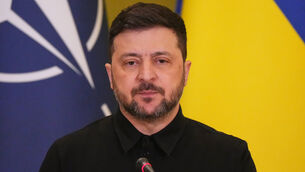Tense atmosphere at climate change talks
The atmosphere both inside and outside the UN climate conference has become more tense after talks were suspended for most of yesterday's session, and police detained up to 200 protesters on Copenhagen's streets.
With only days left before the conference closes on Friday, the wrangle over emission reductions froze a timetable for government ministers to negotiate a host of complex issues.














